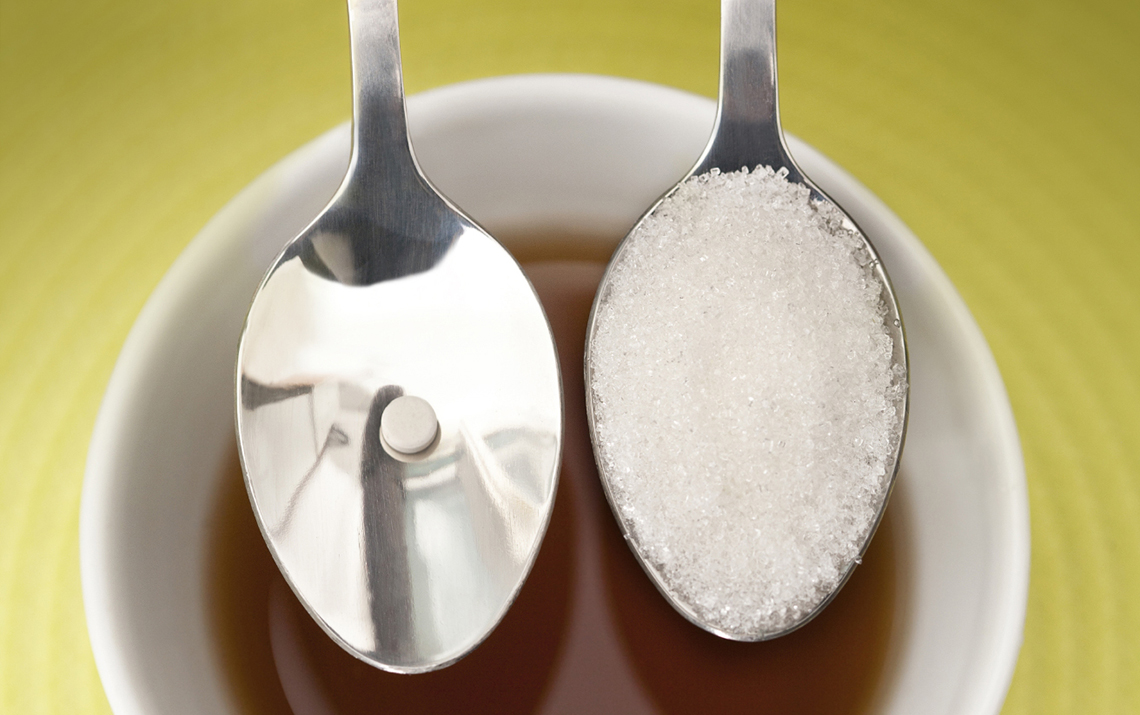The artificial sweeteners aspartame, sucralose, and saccharin cause blood glucose abnormalities in mice and some humans, a team reports in an article published online September 17 in Nature. The changes in glucose tolerance seem to be driven by the microbiome and can be reproduced in germ-free mice by giving them gut microbes from a person who has consumed the sweeteners.
"We found that artificial sweeteners may drive...an exaggerated elevation in blood glucose levels, the very same condition that we often aim to prevent by consuming them," Eran Elinav, MD, PhD, from the Department of Immunology at the Weizmann Institute of Science, Rehovot, Israel, said at a press briefing.
The investigators began with experiments in mice, giving each animal 1 of 3 artificial sweeteners in its water: aspartame, sucralose, or saccharin. Because commercial preparations of these sweeteners also contain some glucose, researchers used glucose, fructose, or plain water for the control mice to ensure it was the artificial sweetener and not any added sugar that was responsible for the effect. "To our surprise, we found they all induced a blood sugar disturbance even compared to mice who drank sugary water," Dr. Elinav said. This effect occurred on both a normal diet of rat chow (P < .001) and a high-fat diet in which 60% of calories came from fat (P < .03).
Because these artificial sweeteners are not digested or absorbed by the human body, the investigators hypothesized that gut microbes were responsible for the results. They administered antibiotics to the mice: 1 group received ciprofloxacin and metronidazole, a broad-spectrum approach focusing on gram-negative bacteria, and another group received vancomycin, aimed against gram-positive bacteria. Both treatments, when given for 4 weeks, eliminated the differences in glucose tolerance between sweetener-fed mice and controls.
The symptoms could also be triggered by a microbial transplant. Microbes from mice who had been drinking saccharin were transplanted via feces into germ-free mice and caused the recipients to show impaired glucose tolerance, whereas microbes from mice who had been drinking glucose did not (P < .03). Further, to show that the microbes were responsible, and not some other component of the feces, the researchers cultured bacteria from mice who were not eating sweeteners and added saccharin to the growth media. These bacteria were then transplanted into germ-free mice, resulting in impaired glucose tolerance compared with mice that received a control culture (P < .002).

















